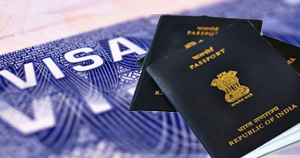Beijing, Jan 21: In a setback to Indian travellers, Hong Kong, a special administrative region of China, has withdrawn the visa-free facility for Indians who will have to complete a pre-arrival registration from Monday. "The Pre-arrival Registration for Indian Nationals will be implemented on January 23. The online service for Pre-arrival Registration for Indian Nationals is now open," the Hong Kong immigration department said in an announcement on its official website.
 "Indian nationals must apply for and successfully complete pre-arrival registration online before they can visit or transit the HKSAR visa-free (if seeking to enter the HKSAR during transit). Pre-arrival registration is not required for Indian nationals in direct transit by air and not leaving the airport transit area," it said.
"Indian nationals must apply for and successfully complete pre-arrival registration online before they can visit or transit the HKSAR visa-free (if seeking to enter the HKSAR during transit). Pre-arrival registration is not required for Indian nationals in direct transit by air and not leaving the airport transit area," it said.
"Indian nationals must apply for and successfully complete pre-arrival registration online before they can visit or transit the HKSAR visa-free (if seeking to enter the HKSAR during transit). Pre-arrival registration is not required for Indian nationals in direct transit by air and not leaving the airport transit area," it said.
A notice on the Indian Consulate in Hong Kong said Indian passport holders without the Pre-Arrival Registration Slip, except those belonging to any of the exempted categories, would not be allowed to board a conveyance bound for Hong Kong. A Pre-Arrival Registration is normally valid for a six month period or until the expiry date of the Indian passport linked to it, whichever is earlier, it said. This is a major set back for over half a million Indians who visit the former British colony for business, trade and holidays.
Till now Hong Kong has permitted Indians to enter with valid passport for a period up to 14 days without a visa. But the facility has been withdrawn despite representations from India ostensibly on the ground that the number of Indian asylum seekers was on the rise, official sources told PTI here. Indian officials refute that saying a minute number of asylum seekers from over half million visitors can not be an excuse to scrap the longstanding facility which also benefitted Hong Kong as most of them were high spending tourists contributing to the economy of the former British colony. There is also concern whether the move is being brought about by Hong Kong due to pressure from China.





Comments
Add new comment